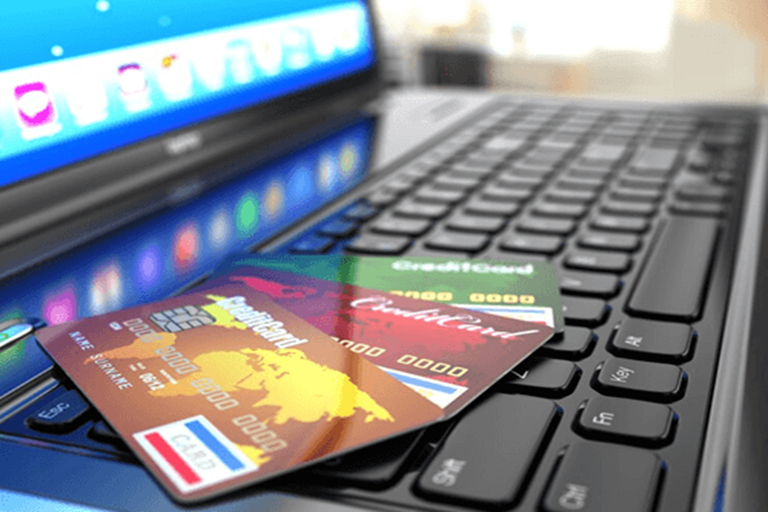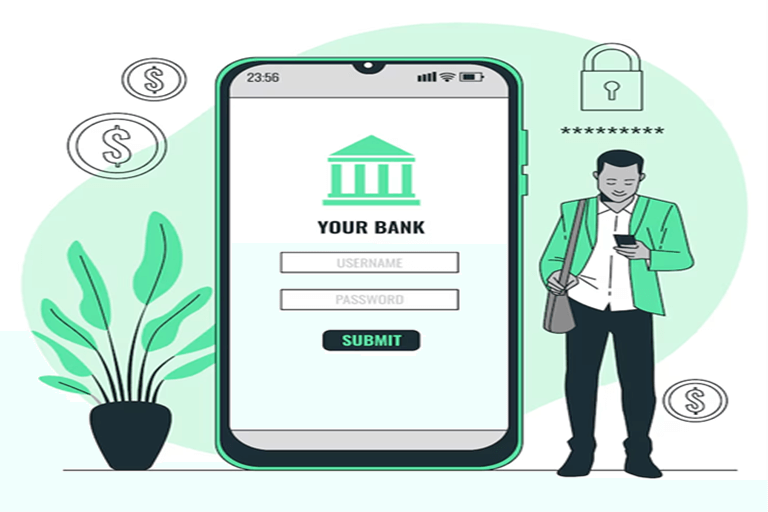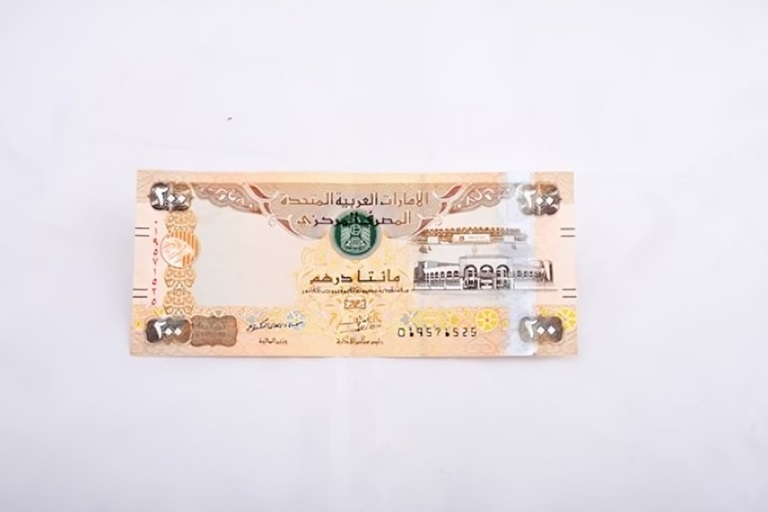
Travelling Abroad: 10 Tips for Managing Your Finances
Table of contents
Navigating your finances while travelling abroad can be challenging, often leaving travellers wondering, “Can I use my debit card internationally?” Ensuring smooth access to your funds is key to enjoying a stress-free journey, no matter where your travels take you.
This guide presents ten essential tips to help you manage your finances effectively while travelling internationally, answering your pressing questions and providing the insight needed for financial ease.
From understanding foreign transaction fees to exploring alternative payment methods, these strategies will equip you with the tools necessary to make the most of your adventure without unnecessary financial worries.
Top 10 Best Ways to Manage Your International Finances When Travelling Abroad
Managing your finances effectively while travelling abroad can make the difference between a stress-free trip and one filled with unexpected surprises. Here are the top 10 best ways to handle your international finances, ensuring you make the most of your travel experience.
1. Check If You Can Use Your Debit Card Internationally

Before your trip, confirm with your bank, whether you can use your debit card internationally. Most banks do allow it, but there are often some important steps to take. You may need to activate international usage either temporarily or permanently, and some banks require you to set specific daily limits for international transactions to ensure security. It’s also important to ask about any restrictions that might apply to your card in certain countries, as some nations may be blocked due to security concerns.
Debit cards are highly convenient abroad, allowing you to withdraw cash in the local currency, but fees and policies vary widely. Make sure to inform your bank of your travel dates to avoid any blocks on your account due to suspicious activity. Understanding your bank’s policies can save you from unexpected charges, such as currency conversion fees or foreign ATM withdrawal fees, ensuring seamless access to your funds.
2. Understand Foreign Transaction Fees
Using your debit card internationally often comes with foreign transaction fees, which are typically charged as a percentage of the total transaction amount. These charges usually range between 1-3%, which can add up significantly throughout your travels. If you’re wondering whether you can use your debit card internationally without incurring high fees, it’s crucial to do your research ahead of time. Some banks offer debit cards with low or no foreign transaction fees or have agreements with partner banks abroad to help you save money on ATM withdrawals.
It’s also helpful to inquire about currency conversion fees, which can be an additional cost when making purchases or withdrawing cash. Many travellers opt for travel-friendly bank accounts, specifically designed for frequent international travellers, which offer fee-free international transactions and favourable exchange rates. Understanding the costs associated with using your card can help you make better choices when managing your money abroad.
3. Use a Mix of Payment Options

Having a mix of cash, credit cards, and a debit card can help you manage your finances effectively while travelling abroad. Relying solely on your debit card is risky due to potential fees and the chance of ATMs not being available in remote areas or small towns. Cash is essential for small purchases, like street food, tipping, and markets where card payments might not be accepted.
Credit cards can also be useful, especially for making larger payments like hotel bills or booking excursions, as they often provide added benefits such as travel insurance, fraud protection, and reward points. It’s also wise to spread your funds among multiple wallets, keep some cash in a safe place at your accommodation, and carry minimal amounts when sightseeing to reduce the risk of losing everything. Also, consider researching the payment preferences of your destination—some countries prefer cash, while others are largely cashless.
4. Check Exchange Rates and Avoid Dynamic Currency Conversion
When using your debit card internationally, it’s crucial to be aware of exchange rates. Understanding the exchange rate helps you estimate costs and make smarter spending decisions. Using real-time currency converter apps can help you stay updated and avoid being overcharged when exchanging money or paying for services. Dynamic currency conversion (DCC) is offered by some merchants and ATMs, allowing you to pay in your home currency instead of the local one.
However, DCC often carries a less favourable exchange rate, along with hidden fees. Whenever you use your debit card internationally, it’s best to pay in the local currency, as this usually ensures a better exchange rate. Before finalising a transaction, confirm whether you’re being charged in your home currency or the local one—this small step can make a significant difference in your overall expenses.
5. Set Up Travel Alerts With Your Bank

One of the key answers to whether you can use your debit card internationally lies in setting up travel alerts with your bank before you leave. Travel alerts notify your bank of your plans, reducing the chances that they’ll flag foreign transactions as suspicious and block your card. Most banks offer convenient ways to set up these alerts through their mobile app, online banking, or by visiting a branch in person. This is a simple but crucial step to ensure uninterrupted access to your funds, especially in emergencies.
Additionally, setting up a travel alert allows your bank to closely monitor suspicious activities and take quick action if necessary, providing an extra layer of security. Make sure your contact information is updated, including an email or phone number they can reach while you’re abroad, in case they need to verify any transactions. Failure to set up a travel alert can result in unnecessary inconveniences, such as blocked cards and declined transactions during your travels.
6. Use ATMs Wisely
When using ATMs abroad, it’s crucial to be strategic to avoid excessive fees and ensure your safety. Always look for ATMs affiliated with your bank or its global partners, as these usually offer better exchange rates and lower withdrawal fees. Using your debit card internationally at random ATMs can lead to higher withdrawal fees, unfavourable exchange rates, or additional bank surcharges that can quickly add up.
Before travelling, check with your bank to see if they have partnerships with foreign banks that waive or reduce these fees. When withdrawing cash, opt for ATMs located in secure places such as banks, malls, or hotels, as these are less prone to tampering or card skimming. Consider withdrawing larger amounts to reduce transaction fees, but make sure not to carry too much cash for safety reasons. Also, always shield the keypad while entering your PIN to avoid potential security risks.
7. Budget and Track Your Spending

While travelling abroad, sticking to a budget and tracking your spending are essential to ensure you don’t overspend and run out of money. If you’re using your debit card internationally, banking apps that provide instant transaction alerts can help you monitor spending in real-time. In addition, budgeting apps allow you to categorise and track every expense, including food, accommodation, and transportation.
Setting a daily or weekly spending limit helps ensure that you stay within your budget, and gives you a clearer idea of how much money you have left. Be mindful of using cash for smaller expenses and cards for larger ones to balance your spending more effectively. It’s also helpful to maintain a small contingency fund for unplanned expenses—having some buffer money can allow you to navigate unforeseen situations without stress.
8. Keep Emergency Contact Numbers Handy

Keeping emergency contact numbers easily accessible is vital when travelling abroad. This includes your bank’s customer care number, the helpline for reporting lost or stolen cards, and any local consulate numbers. If you use your debit card internationally and it gets lost or stolen, knowing whom to contact can make the difference between quickly securing your funds or potentially losing them.
Write down these numbers and store them separately from your cards; also, save them digitally on your phone. If your debit card is lost, acting quickly is key—you can have your card blocked immediately to prevent unauthorised transactions. Additionally, inquire with your bank before travelling to see if they provide emergency cash services, which can be a lifesaver if your card is compromised and you need quick access to funds. Taking these precautions ensures that if something goes wrong, you have a plan in place.
9. Use Prepaid Travel Cards
Prepaid travel cards are a great alternative to using your debit card internationally, offering convenience, security, and control over your travel expenses. These cards can be preloaded with multiple currencies, allowing you to lock in a favourable exchange rate before your trip, which protects you from currency fluctuations. Compared to using debit or credit cards, travel cards often have lower fees for transactions and ATM withdrawals.
Since these cards are not linked to your primary bank account, the risk of fraud is significantly reduced, providing an extra layer of security. Most prepaid travel cards allow you to instantly freeze or replace them through a mobile app if they are lost or stolen, adding an extra sense of security. Widely accepted by merchants, hotels, and ATMs worldwide, prepaid cards offer a practical solution for managing your travel expenses without overspending, allowing you to enjoy your travels worry-free.
10. Monitor Your Account Regularly
Regularly monitoring your bank account while travelling is essential for protecting against unauthorised transactions and ensuring your finances are secure. Using your debit card internationally can expose you to potential fraud, so staying vigilant is crucial. Logging into your online banking app every few days allows you to review all recent transactions, ensuring that they align with your spending. Look for discrepancies, such as small unauthorised charges that could indicate skimming or data compromise.
Many banks offer SMS or email alerts for each transaction, allowing you to quickly identify any suspicious activities. If you do notice anything unusual, contact your bank immediately to block the card and prevent further unauthorised use. It’s also advisable to keep your banking app updated and use two-factor authentication (2FA) for added security. By taking these steps, you can prevent unauthorised access and enjoy peace of mind during your trip.
Master Your Finances for Stress-Free Travel
Understanding how to manage your finances effectively while travelling isn’t just about knowing if you can use your debit card internationally—it’s about making informed choices that can significantly enhance your travel experience. From setting up travel alerts and avoiding excessive fees to using a mix of payment options and tracking your expenses, these strategies help ensure that your finances are well-managed, allowing you to focus on enjoying your journey. By being proactive and prepared, you can make the most of your adventures abroad with financial peace of mind, free from unexpected surprises and stress.
Table of contents
Our Forex Offerings
Trending blogs for you
Recommended Articles for you
15+ Places to Visit in Ooty – The Queen Of Hill Stations
Reading Time: 9 minutes 0 0 How does this sound to you: bright green soothing slopes, mystical pathways, and clouds that kiss your hair? Ooty is replete with such immense beauty and has enough activities and elements to keep every traveler happy and satisfied.One […]
PAR: Hong Kong Visa Myths Busted
Reading Time: 6 minutes 0 0 Hong Kong, the Special Administrative Region of the People’s Republic of China (PRC), is increasingly becoming one of the most sought-after international holiday destinations for Indian tourists. This has something to do with its vibrant culture, iconic skyline, […]
Choosing the Best Forex Card for Your Travel Needs
Reading Time: 9 minutes 0 0 Travelling abroad can be an exciting adventure, but managing your finances while on a trip can sometimes be challenging. When visiting different countries, paying in local currency is essential to avoid the pitfalls of unfavourable exchange rates and […]
Top Zero Markup Credit Cards for Forex Transactions in India in 2025
Reading Time: 9 minutes 0 0 Traveling internationally often comes with various expenses, and one of the most significant is currency conversion. Traditional methods, such as exchanging cash or using credit/debit cards, usually involve hidden charges, hefty conversion fees, and unfavourable exchange rates. Enter […]
Why You Should Consider Trading Forex: 12 Key Insights
Reading Time: 5 minutes 0 0 Foreign exchange trading, commonly known as forex trading, has grown to become one of the most popular forms of trading worldwide. With a daily trading volume exceeding $7 trillion, it represents the largest and most liquid financial market. […]
Key Differences Between Regular Bank Accounts and Overseas Bank Accounts
Reading Time: 5 minutes 0 0 In a globalized world where people frequently travel, migrate, or conduct business across borders, understanding the distinction between regular bank accounts and overseas bank accounts is crucial. While both serve the primary purpose of storing and managing money, […]
Doorstep Forex Delivery and more by Thomas Cook
Reading Time: 4 minutes 0 0 Foreign Exchange today is one of the basic requirements for not only business travellers but tourists as well and getting a Doorstep Forex Delivery when you are really running late is truly a blessing! This is where reputed […]
Top 50 Famous Beaches in Goa Including the Ones You Don’t Know
Reading Time: 9 minutes -117 -178 Although it is one of the smallest states in India, Goa offers an abundance of beautiful beaches. Our Goa tour packages will be perfect for a much-needed break from our hectic lives. So here’s a list of Goa beaches […]
Hotter Than Hot: Exploring India’s Hottest Destinations
Reading Time: 10 minutes 0 0 Exploring the hottest places in India reveals more than just extreme temperatures; it uncovers a rich tapestry of cultures, intriguing histories, and breathtaking landscapes. From the arid deserts of Rajasthan to the blazing plains of Uttar Pradesh, each […]
10 Best Places To Visit In July In India On A Budget
Reading Time: 11 minutes 0 0 July, with its refreshing monsoon showers, transforms India into a vibrant tapestry of lush greenery and spectacular landscapes. For those who wish to explore the beauty of this transformation without causing a dent in their wallets, there are […]
Top 10 Coldest Places In India You Must Visit This Winter
Reading Time: 8 minutes 0 0 As winter approaches, the quest for crisp air and snow-covered landscapes draws many away from India’s typically mild winters. Embrace the season by venturing into the country’s coldest regions, where each destination offers a unique blend of natural […]
12 Best Places To Visit In November In India In 2025
Reading Time: 8 minutes 0 0 November is a month of vibrant transitions in India, offering an array of travel experiences from the cool Himalayan foothills to the warm beaches of the south. If you’re planning your travel itinerary for November 2024, India presents […]
10 Stunning Places To Visit In October In India To Experience the Autumn
Reading Time: 11 minutes 0 0 10 Stunning Places To Visit In October In India To Experience the Autumn October marks a magical time in India when the monsoon rains have ceased, and the landscape bursts with vibrant colours, making it an outstanding month […]
September Travel Guide – 8 Offbeat Places to Visit in September in India
Reading Time: 4 minutes 0 0 As the monsoon starts to wane, September brings forth the vibrant palette of India with its pleasant climate and colourful festivals, making it an ideal time for offbeat travels. This guide delves into eight unique destinations across India […]
Explore Top Places to Visit in India this August
Reading Time: 11 minutes 0 0 August in India isn’t just about monsoon rains; it’s a month that opens up an array of travel possibilities across the country. From the cool hill stations to the less crowded beaches, the best places to visit in […]
10 Best Places to Visit in November Outside India on a Budget
Reading Time: 8 minutes 0 0 As November rolls in with its mild weather and the promise of new experiences, many Indian travellers start looking for the perfect overseas getaway that doesn’t break the bank. If you’re planning to explore new cultures, cuisines, and […]
Top 10 Best Countries to Visit in October for Stunning Autumn Views
Reading Time: 9 minutes 0 0 Top 10 Best Countries to Visit in October for Stunning Autumn Views As October rolls in, so does the magical palette of autumn, transforming the landscapes of various countries into a vivid mosaic of colours. The crisp air […]
A Simple Explanation of Currency Pairs for Forex Beginners
Reading Time: 4 minutes 0 0 The foreign exchange market, or Forex, is the largest financial market in the world, with trillions of dollars traded daily. For beginners, understanding the basics is crucial to navigating this dynamic market. One of the most fundamental concepts […]
Which Currency is Best to Use in Dubai?
Reading Time: 4 minutes 0 0 Dubai, one of the world’s most vibrant and luxurious destinations, attracts millions of tourists and business travellers each year. Known for its towering skyscrapers, world-class shopping malls, and rich cultural experiences, Dubai’s allure often raises a common question […]
Step-by-Step Guide to Reloading and Unloading Your Forex Card
Reading Time: 5 minutes 0 0 A Forex card is an indispensable tool for international travellers, offering a secure, convenient, and cost-effective way to carry foreign currency. Whether you are a frequent flyer, a student studying abroad, or simply on holiday, a Forex card […]
 18002099100
18002099100




















